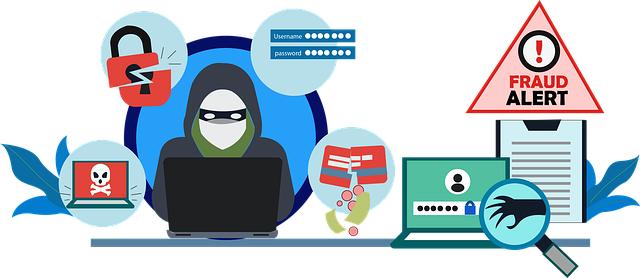- Introduction
- Identifying Red Flags
- How to Protect Yourself
- Common Types of Gift Card Scams
- Taking Action Against Scammers
- Conclusion
- FAQs
Introduction
In 2024, gift card scams have risen to unprecedented levels, particularly on popular platforms such as Amazon and Target. Perpetrators are becoming increasingly sophisticated in their approach, targeting unsuspecting victims with various tactics designed to exploit their trust. This article will explore the telltale signs that indicate a potential scam, ways to safeguard yourself, common types of scams currently in circulation, and the actions you can take if you find yourself a victim or encounter suspicious activity.
Identifying Red Flags
One of the first steps in protecting yourself from gift card scams is being able to recognize the red flags. Scammers often employ a range of tactics to create a sense of urgency, leading victims to make hasty decisions. Below we will discuss some telltale signs that a situation might be suspicious.
1. **Urgency and Pressure**: Many scams begin with a sense of urgency. For example, a scammer might claim that your account has been compromised and that you must purchase gift cards immediately to resolve the issue. This pressure tactic is designed to prevent you from thinking critically about the situation. Always remember that legitimate companies will not put you in such a predicament.
2. **Requests for Specific Payment Methods**: Be wary if someone insists that you pay with gift cards alone. Reputable organizations typically provide multiple payment options, and requesting only gift cards is a major red flag that you are dealing with a scam.
3. **Unsolicited Offers**: Receiving unsolicited emails or messages claiming you’ve won a prize or a limited-time offer requiring a gift card payment is another warning sign. Authentic promotions or contests should always direct you through official channels – not require payment upfront.
4. **Generic Greetings and Language**: Many scams use generic greetings like “Dear Customer,” instead of personalizing communications. Lack of detailed information regarding the company or an unprofessional tone can also serve as a clue that something isn’t right.

(Image: Pixabay/@geralt)
How to Protect Yourself
Protecting yourself from gift card scams requires vigilance and a proactive approach. Here are several tips you can follow to ensure your safety in online transactions.
1. **Educate Yourself**: The best way to protect yourself from scams is to stay informed. Familiarize yourself with common scam methods and updates from reputable sources. Regularly check websites dedicated to scam awareness and prevention to stay ahead of any new trends.
2. **Secure Your Accounts**: Utilize strong and unique passwords for your online accounts and enable two-factor authentication wherever possible. This extra layer of security makes it considerably tougher for scammers to gain access to your financial information.
3. **Verify Information**: If you receive a request for payment via gift cards, independently verify the information with the person or company that supposedly made the request. Never use contact information that is provided in a suspicious message; instead, look up the official contact details on their website.
4. **Report Suspicious Activity**: If you suspect you’ve been targeted by a scam or have encountered suspicious activity, reporting it to authorities can help prevent others from falling victim. Inform the Federal Trade Commission (FTC) or local law enforcement, and consider notifying the platform from which the scam originated.

(Image: Pixabay/@TheDigitalArtist)
Common Types of Gift Card Scams
Understanding the various types of gift card scams can further equip you to recognize threats. The following are some common scams to be aware of:
1. **Tech Support Scams**: In this scenario, scammers impersonate tech support agents, claiming they detected a virus or malware on your device. They may ask you to purchase gift cards to pay for supposed repairs. Always remember that legitimate companies will never ask for payment through gift cards.
2. **Romance Scams**: Often conducted on dating platforms, these scams typically involve online relationships where the scammer eventually requests financial help through gift cards due to a fabricated emergency. Be cautious of anyone who quickly asks for money or favors before meeting in person.
3. **Impersonation Scams**: Scammers frequently impersonate friends or family members, pretending to need immediate cash for emergencies. They may request you to buy gift cards and send them the numbers. Make sure to confirm with your loved ones through a different method of communication before complying with any urgent requests.
4. **Lottery or Prize Scams**: These scams inform you that you’ve won a lottery or contest but require payment of taxes or fees via gift cards to collect your supposed prize. A true lottery will never ask for payment to release winnings.

(Image: Pixabay/@Fidsor)
Taking Action Against Scammers
If you find yourself in a situation where you might have been scammed or know someone who has, it’s crucial to take swift action to minimize potential losses.
1. **Contact Your Bank**: If you’ve provided sensitive financial information or purchased gift cards, contact your bank immediately. They can guide you on steps to securing your account and possibly recovering funds.
2. **File a Complaint**: Report the scam to the FTC or your local consumer protection agency. Filing complaints not only aids your case but also contributes to wider efforts to combat fraud.
3. **Keep Records**: Document everything related to the scam: messages exchanged, payment receipts, and any other relevant information. This documentation will be crucial if authorities investigate the scam.
4. **Stay in Touch with Victims’ Groups**: Many organizations and communities gather to support scam victims. Engaging with others who share similar experiences can help you navigate your feelings and provide useful resources.

(Image: Pixabay/@analogicus)
Conclusion
Gift card scams continue to rise, especially on widely-used retail platforms like Amazon and Target, making it essential to stay alert and informed. Recognizing red flags, employing protective measures, being aware of common scams, and knowing how to react if targeted can significantly reduce your chances of falling victim to these deceitful schemes. Your safety in online transactions begins with awareness and proactive steps to guard against potential scams.
FAQs
What are the signs of a gift card scam?
Signs of a gift card scam include urgent requests for payment, pressure to use specific payment methods like gift cards only, unsolicited offers or claims of winnings, and generic communications lacking personalized details.
How can I protect myself from gift card scams?
You can protect yourself by educating yourself on common scams, securing your online accounts with strong passwords and two-factor authentication, verifying any suspicious requests, and reporting any fraudulent activity.
What should I do if I think I’ve fallen for a scam?
If you believe you have been scammed, immediately contact your bank for assistance, file a complaint with the FTC or local authorities, keep records of the transaction and communications, and consider joining victims’ support groups for guidance.
Can I get my money back after buying gift cards for a scam?
Recovering funds spent on gift cards is challenging, but contacting your bank or credit card company may help. Keep in mind that once the scammer has received the gift card numbers, it is often too late to retrieve the funds.
Are there better payment methods than gift cards?
Yes, using credit or debit cards provides better protection against fraud since these methods often allow for chargebacks or reversing transactions if unauthorized payments occur, unlike gift cards.

